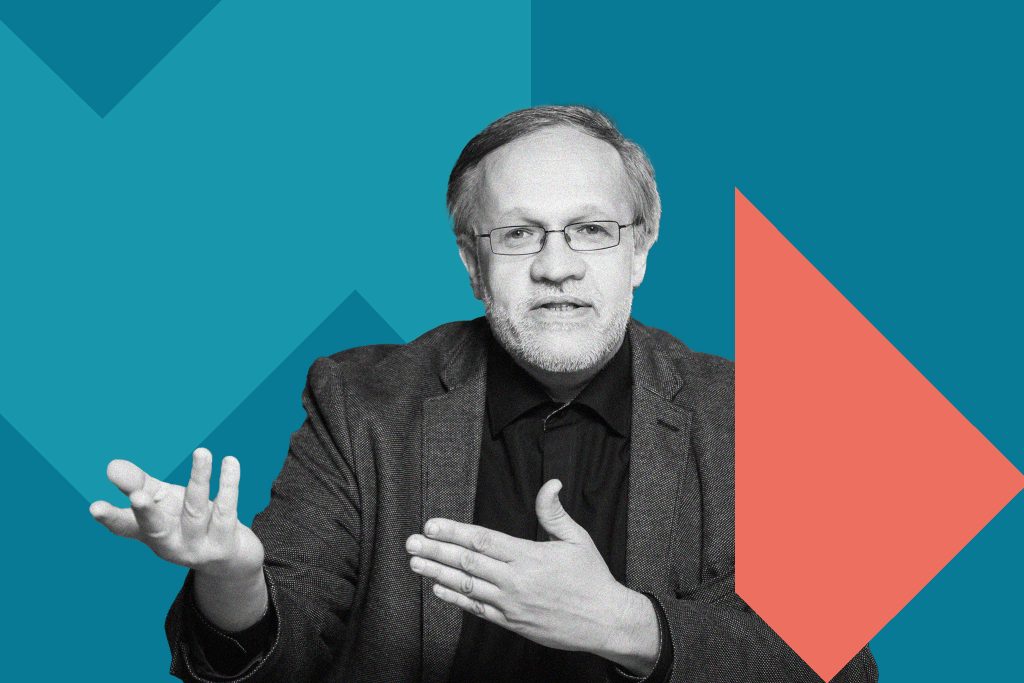Democracy Technologies: You have recently announced that you are launching a professional association for citizen participation in Germany. Why do you think it is needed?
Jörg Sommer: Citizen participation in Germany has been on an upward trend for years. More people are getting involved, more processes are being organised. But that doesn’t mean that the quality of participation is also rising.
Often, the processes are not well planned. Or the results are not incorporated into political decisions. Sometimes moderators are hired who don’t really have experience with citizen participation.
Often, the very groups that are already too rarely represented in politics are not sufficiently involved. Yet there are more and more people who have many years of professional experience in citizen participation. But their voices are often not sufficiently taken into account when planning and commissioning participation.
We want more and better participation – and that can only happen if experts from the field have more influence. So far, there are only loose, non-binding networks in Germany, but no strong organization that makes these voices heard.
DT: There are several professions working on participation both in the public and in the private sector. Who are you planning to include in it? And why?
Jörg Sommer: So far, about 400 people nationwide are involved in the project. They ultimately decide to whom the organisation should be open.
The current trend is to include all people who are professionally involved in civic participation, regardless of their profession.
Facilitators are just as welcome as people working in municipal administrations, companies or ministries. Our aim is to bring together as much experience and expertise as possible.
DT: What do you envision the main activities of this association to be?
Jörg Sommer: It will certainly be a matter of developing and enforcing quality standards. This requires an intensive exchange between the members. Training offers will also play a role, as will the development of demands on politicians and practical guides for the providers of citizen participation.
DT: How are you planning on enforcing quality standards? Are you planning to lobby the national or local governments to adopt the quality standards that you develop as their policy on participation?
Jörg Sommer: In fact, there are already some networks in Germany that have developed quality standards for their own activities. Many cities have their own guidelines for citizen participation, and some ministries also work with their own standards. However, this leads to different criteria being used everywhere. So our first step is to standardise these criteria. The second step will be to make these standards more binding. To this end, we are seeking talks with the government, which has already signalled its willingness to do so. After many years in which public participation in Germany has developed in a stormy but also chaotic manner, we are heralding a phase of structuring and quality assurance with the founding of our association.
DT: Do you want the Berlin Institut für Partizipation to have a particular role in this professional association for participation, or is it just the launchpad?
Jörg Sommer: Although I am the director of the Institute, I am also active in other functions. I am for instance Member of the Board of the Competence Center for Citizen Participation and coordinator of the Alliance for Diverse Democracy, in which 240 representatives of governments, municipalities, companies and NGOs talk about citizen participation.
All of these organisations support this initiative, but ultimately it will be a federation of individuals who alone decide on its shape according to democratic principles. I will have a voice in this process, just like everyone else – including the staff of my institute, by the way.
DT: So, how do you make democratic decisions within the association? How is this organised? Do you use any tools?
Jörg Sommer: We used an online platform for the preparation process (adhocracy+), which was developed by a non-profit association for municipal citizen participation. It works very well for our organisation. There we collect ideas, discuss proposals and vote on important issues. There have been more than 1,000 suggestions, votes and contributions to discussions there so far. To ensure that people from all parts of the country can participate on a permanent basis, we rely very heavily on digital participation. And of course, we practice different participation formats internally to test their practicality and to develop ourselves further. Because good citizen participation is based on two factors: Attitude and experience.
DT: As I understand, this is currently a plan for Germany only. In how far are you interested in any connection to similar initiatives in other countries? Do you know of any?
Jörg Sommer: The idea initially focused only on Germany, since then colleagues from Switzerland and Austria have joined in. For sure, it will be limited to these countries at most for the moment. We then want to see if we can find possible partner organizations in other countries. We are very interested in international networking.
